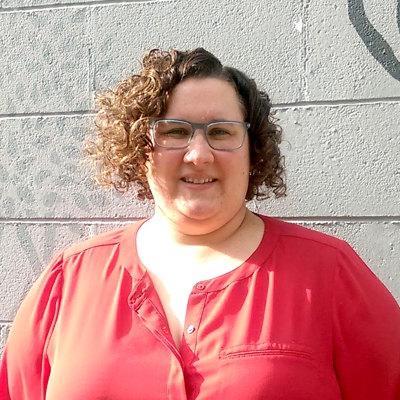
Kealy Williams
Principal Software Consultant
Actions
Kealy Williams is Principal Software Consultant at Menlo Innovations where she has been working on collaborative teams with 100% paired programming for 18 years. She is passionate about agile methodologies and sharing her knowledge through workshops and speaking. As a thought leader, at Menlo Innovations, she is constantly refining what it means to be a coach and a teacher for her team. Kealy holds a bachelor of science in Computer Engineering from Michigan Technological University.
Links
Systematic Collaboration Unleashed: Strategies for Lasting Impact
Collaboration doesn’t just happen. You can’t just wave a magic wand and say “collaborate”. Neither can you throw a pizza party and expect newly formed relationships to support team collaboration. The system, process, and culture must support collaboration for it to be effective.
Lasting and sustainable collaboration in a team is easy to describe: “My team can self-organize”, “My team can productively disagree”, “My team brings new members up to speed quickly”. But these results can be hard to achieve.
In this talk, Kealy Williams and Dan Roman will describe how they infuse systemic collaboration into every facet of their team’s daily work. Regardless of role, specialization, or seniority, attendees will walk away with some simple ideas to try in their teams the next day.
Unlocking Effective Teams: Redefine Your Hiring Game
Traditional hiring strategies result in teams full of people who look good on paper but don’t know how to collaborate because hiring teams can’t see a person's skills in action. These teams rarely solve problems effectively. Redesigning your interview process to highlight collaborative tendencies while working on real problems creates teams that can actually get work done. In this session, you’ll experience how Menlo Innovations finds their favorite people – and how FordLabs has been experimenting with a similar mindset in their hiring practices! You’ll walk away with lessons learned from others and a jumpstart to your own new hiring process.
Famous last words: “I’ll just write the code and you’ll understand.” You need a plan!
Too often programmers begin coding without a clear plan of attack because we lack the tools and practice to formulate our technical ideas so others can understand them. This leads to technical debt, wasted effort, confused pair partners, and projects that frustrate business stakeholders. We believe that developers should have a implementation plan for their user stories before writing a single line of code. When development teams can plan and communicate effectively they write better, cleaner, easier to maintain code. Moreover, practicing planning allows teams to learn to make conscious architectural tradeoffs and become more effective and valuable to the business.
We’ll explain how making and clearly communicating a plan can lead to better solutions, produce cleaner code that’s easier to understand and maintain, and much more. We’ll also speak practically about tools and practices for sharing plans with your peers.
Don't be Afraid of the Big Bad News: overcoming fear and exposing risk
Undelivered bad news hides risk that in turn produces failed projects. To deliver successful projects, we must build systems where bad news can be shared without causing debilitating fear. In this session, we will argue this fear is artificial and avoidable; it is created when we react poorly to bad news.
Participants will learn about building a culture that replaces fear with an attitude of stewardship and trust. Participants will also gain strategies to combat artificial fear allowing the discovery of hidden risks in their projects.
Why Can't Architecture Be Agile?
Software teams are paralyzed waiting for the solution architect's approval. Most companies require this approval before any work can be done. This means the project is delayed waiting for the architect's complete plan. Why can't architecture be agile? If your team is agile, your architecture should be too! The development team is completely capable of designing the code to fit the business domain, all they need is a metaphor. We will explain how an understanding of the business domain, communication skills, and an agile process can organically grow the architecture without needing the complete plan up front.
The Domain Doesn’t Matter; the Discovery Does.
Are you tired of working in the same domain? Teams get typecast into the same domain limiting their growth and ability to expand the business. Stakeholders gravitate towards teams with the most knowledge of their domain when really they should be looking for a team that learns, problem solves and is effective no matter the domain. Teams can be domain agnostic by using a beginners mind with a well defined process of discovery. Join us at this workshop to experience using interviews, observations, and team synthesis to dive into an unknown domain and come out on the other side with a domain model.
Storycards 102: Business Flexibility through Transparent Control
So you wrote some storycards, now what? Having effectively written storycards is only the beginning of effective collaboration. Using storycards provides stakeholders flexibility to steer the project and guide decisions towards business outcomes. All of this relies on transparent control throughout the process. This workshop will give you practical experience using storycards, as part of a process, to facilitate planning, execution, and tracking. Everyone can benefit, but if you joined us for last year’s “Storycard Writing: 101”, this will provide the next steps of facilitating work with storycards.
Please note that Sessionize is not responsible for the accuracy or validity of the data provided by speakers. If you suspect this profile to be fake or spam, please let us know.
Jump to top